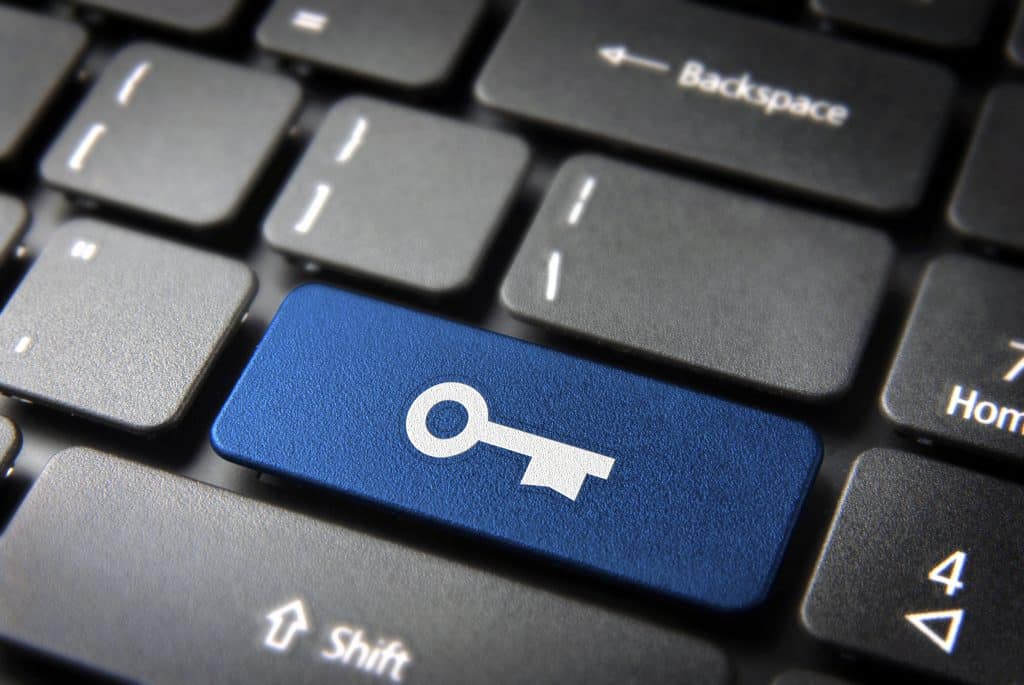As an entrepreneur today, having a website that is visible and conveys what you want is a must. Maybe the website works as a contact page, an information page about your business services, or as advertising for your company? Usually, it’s a combination of all three, and, as a result, the website is indispensable for businesses, both small and large-sized.
With the help of a #website that describes why your company exists, what it does, what makes it unique in the #market, you create the basic conditions for reaching the absolute majority of your potential #customers. Click To TweetWithout a website, you mostly rely on word-of-mouth and coincidences when it comes to acquiring new customers. A business website also opens up new markets. Through fairly small interventions, you can transform your site from a seller in your local market to an international seller.
However, there could be devastating consequences if your website is attacked. For this reason, website security should be the top priority of any business. Fortunately, there are some steps you can take to minimize the risk of cyber-attacks.
Keep Accounts and Passwords Secure
Always make sure that the login details are secure and private. Anyone who has access to them also has access to your control panel and then has the opportunity to destroy things for you in several ways.

The person may change the information on your website, redirect traffic to a competitor’s website, and steal customer information for which you’re responsible. So you should be careful when it comes to giving people access to your login information. It’s important that you use strong passwords, that you change them regularly, and that you do not use the same password for different purposes.
Use Investigative Tools
Unless your website is fully protected, there’s a high risk of it becoming subject to a fraudulent domain transfer, someone breaking into your domain control panel and transferring your website to their name.
By masking confidential information, domain privacy protection helps your business tremendously.
Many anti-malware, as well as cyber security companies, use Whois history details to collect information on who is behind a malicious domain and such data can even be used by law enforcement agencies and investigators in developing attacker profiles, which is extremely useful when it comes to catching criminals.
Secure It With SSL Certificates
SSL (Secure Socket Layer) encrypts all data provided by visitors, including names, credit card information, and email addresses. SSL prevents man-in-the-middle attacks. This means that if an unauthorized person gains access to the data, the data is encrypted and can only be unlocked with a private key.
Protecting user data is important for businesses and they should always use SSL certificates that can be activated automatically without any further setting up.
Be Vigilant and Have a Clean Backup
Both you and your website will feel good about regular health checks, and it’s important for you to regularly scan your website and make sure there is no malware. There are solutions that are cost-free, but also solutions that you have to pay for.

The level of frustration can quickly skyrocket if you inadvertently destroy data by installing a malicious extension or clicking on a dangerous link and at the same time lacking a backup of the website. Routinely backing up your data can solve these problems, and at the same time make you feel safe. Backups allow you to restore your website to the latest clean version and just lose a day’s work instead of losing everything.
Keep Software, Website Tools, Extensions, and Themes Up-To-Date
New vulnerabilities are daily found in existing code. As they are made public, software providers tend to update their codebases and make sure they’re corrected and new protections are put in place. As a site administrator, you must keep up with this, or else hackers will attack your site if it is moderately to severely out of date.
Fortunately, there are opportunities to update the software immediately with minimal testing through a great host-level backup process.
If you create your website yourself in, for example, WordPress, it’s important to keep your WordPress version, themes, and extensions updated. An updated version gives you new features, an improved interface, and also counteracts intrusion.
Themes, extensions, and versions that aren’t updated can contain security holes, making it easy for hackers to enter your site and fill it with spam links or steal your personal information.
Final Thoughts
Providing a secure website environment where communication and transactions can be carried out carefree, will increase customers’ trust in your business and brand. Any breach of that trust can easily make them reconsider doing business with your competitors. So, by implementing these tips, you’ll be guaranteed a secure, modern, and easy-to-use website and peace of mind.
For the WordPress website owners, it is worth mentioning that their websites will be fully protected with the help of the Copy Content Protection plugin. With this plugin, every website owner can prevent their content from being copied and feel safe from plagiarism. Use Geo-Blocking to protect your website content based on the visitor’s geographical location. Furthermore, you can use the IP address blocking tool to block your web blog’s material from specific IP addresses. With Copy Content Protection, all the information shared on your website like; texts, posts, and images will be a hundred percent secured.